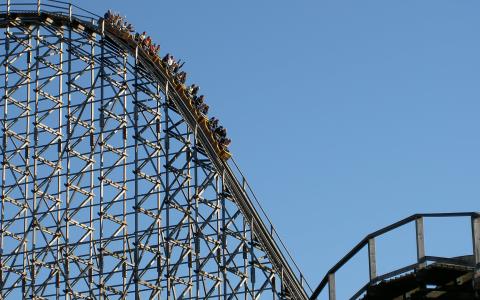
Cathie Wood’s ARK Innovation ETF has experienced significant volatility, but most investors have missed out on the highs and borne the brunt of the lows, according to new data.
The $5.8 billion ARKK fund gained widespread attention due to Wood’s reputation as a star portfolio manager and CEO of ARK Invest, with her aggressive bets on pandemic-era tech stocks like Tesla and Zoom.
The fund more than doubled in value in 2020, at one point becoming the largest actively managed ETF, overseeing nearly $30 billion. However, shares tumbled over the next two years and have continued to fluctuate. While the fund posted a 68% return in 2023, it’s down about 14% so far this year.
Despite the fund’s performance, the average ARK investor has fared much worse, according to Morningstar.
Since its inception in 2014, ARKK has averaged a 9.7% annual return, per Morningstar. Although this is far below the once-anticipated triple-digit returns, it aligns more closely with long-term stock market averages.
For investors, however, the picture is grimmer: Morningstar calculates their average annual return at -17%.
“It’s unusual to see such a large gap for a fund of this size,” Morningstar analyst Jeffrey Ptak told Barron’s. “It’s virtually unheard of.”
Morningstar’s calculation of investor returns tracks the movement of money in and out of the fund, revealing the portion of the fund’s annual return actually captured by investors.
While it’s common for investor returns to lag behind the fund’s actual returns, the average lag for funds with more than $1 billion in assets is typically about one percentage point.
A key reason for ARKK investors missing out on gains is their tendency to invest heavily during the fund’s initial surge in the pandemic, including $12 billion in the six months leading up to the downturn in early 2021.
As a result, many latecomers have endured the negative returns of 2021 and 2022—23% and 67%, respectively—due to significant losses from holdings like Zoom, Roku, and Roblox.
It’s not typically the responsibility of a fund portfolio manager to manage investor timing. Unlike traditional mutual funds that often close to new investments, ETFs like ARK Innovation remain open.
In a July shareholder letter, Wood acknowledged the challenges, writing, “As an investor in our funds myself, I understand that volatility can be frustrating and unsettling.”
SEC filings indicate that Wood has over $100,000 invested in ARKK, along with similar stakes in at least seven other ARK Invest funds.
She reiterated her confidence, stating, “Our conviction in and commitment to investing in disruptive innovation have not wavered.”
Despite ARKK’s 67% rebound last year, the law of compounding returns means its net asset value, or share price, remains far below its pandemic-era peak.
Over the past year, investors have withdrawn about $2.2 billion from the fund, effectively locking in their losses regardless of any future performance.
Ptak put the situation into perspective: “It’s one of the largest-scale failures we’ve ever seen in the fund industry.”
He noted that over the past five years, while ARKK experienced extreme volatility, the S&P 500 approximately doubled in value.
If investors had simply invested in an S&P 500 index fund, they would have seen returns of about 15% annually, compared to ARK’s investors losing approximately 17% per year.
“That’s a major fail,” Ptak concluded.



